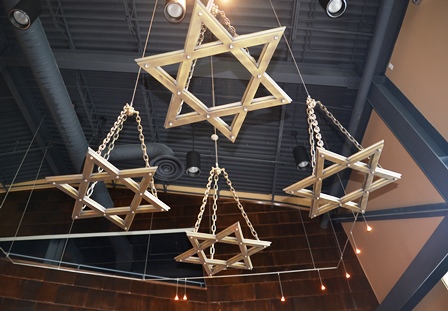Rosh Hashanah and Yom Kippur
“May you be inscribed (in the Book of Life) for a Happy Year.”
“Le shanah tovah tikateiv veteichateim,”
Rosh Hashanah, the Jewish New Year, begins at sundown on September 24 and is celebrated through September 26; while the holiest day of the year, for Jews everywhere, Yom Kippur, the Day of Atonement, begins at sunset on October 3rd and ends on October 4th, at sunset. The ten days in between Rosh Hashanah and Yom Kippur are known as Yamim Noraim, the Days of Awe; this is a time of repentance and atonement.
The New Year is ushered in according to Leviticus 23, with the sounding of the Shophar, calling Jews to seek God’s forgiveness, reflecting on Him and His desire for mankind; hoping for a sweet and happy new year, an apple dipped in honey, is consumed with joy!
Yom Kippur is marked with fasting and deep reflection, praying for forgiveness of sins, and determining to repent and make amends for deeds unpleasing to God, again as Leviticus 23 calls for. “The Mishnah (Yoma VIII, 9) tells us that ‘when a person says I shall sin and Yom Kippur will procure forgiveness, Yom Kippur will not procure forgiveness.’ Furthermore, ‘it is only for the transgressions against God that Yom Kippur atones, but as for transgressions against our neighbor, there can be no atonement until we have first righted any wrongs we may have committed.”[I]
“Awake from your slumbers and ponder your deeds. Remember your Creator . . . look well to your souls and consider your actions. Forsake each one of your evil thoughts and ways and return to god so that He may have mercy upon you.”
~ Rabbi Moses Ben Maimon (Maimondies) ~
[i] Introduction to Judaism, by Isidore Fishman, London, 1966.











